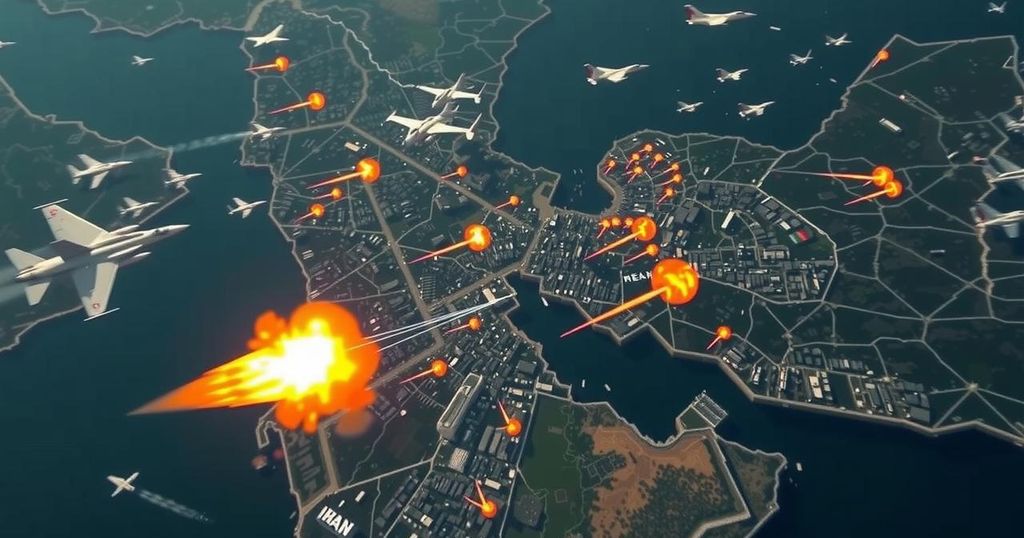Israel’s Airstrikes on Iran: A Risky Retaliation Amidst Escalating Tensions

Israel carried out airstrikes on military targets in Iran in response to a missile attack launched by Iran earlier in October. This represents a significant escalation in Israel-Iran relations, with potential implications for broader regional stability amidst ongoing conflicts involving Iranian-backed groups. Both countries acknowledge the escalation, highlighting the precarious nature of the current Mideast landscape.
In a significant escalation of tensions in the Middle East, Israel conducted a series of airstrikes against military targets in Iran early Saturday, representing its first open military response to Iranian aggression. This action comes in retaliation for an extensive missile attack initiated by Iran against Israel earlier this month, wherein approximately 180 missiles were launched, prompting widespread alarm among the Israeli populace. The Israeli military asserted that the strikes aimed at missile manufacturing facilities and air defense sites linked to the Iranian missile assault. As explosions reverberated through Tehran, murmurings of damage or casualties remained unconfirmed. Rear Admiral Daniel Hagari, an Israeli military spokesperson, emphasized the necessity for Israel to respond, declaring, “Like every other sovereign country in the world, the state of Israel has the right and the duty to respond.” Despite the gravity of the situation, Iranian state media portrayed the event with a degree of nonchalance, focusing on daily life in Tehran and downplaying the severity of the attack. Locals reported hearing multiple explosions, indicating a potentially significant military operation. The mixed responses highlight an atmosphere of hostility and uncertainty as both nations navigate this perilous situation. With regional hostilities at an unprecedented high, particularly amidst ongoing conflicts involving Iranian-backed groups such as Hamas and Hezbollah, the implications of this strike are grave. The potential for an all-out war looms over both Israel and Iran, sparking concern regarding broader regional stability and the involvement of external actors, including the United States.
The longstanding enmity between Israel and Iran dates back to the 1979 Islamic Revolution, which positioned Iran as a stark adversary to Israel, particularly due to its vocal rhetoric surrounding the destruction of the Israeli state. Over the years, the two countries have engaged in a covert struggle characterized by sabotage, assassinations, and proxy confrontations across the Middle East. With the escalation in October when Iran launched a substantial missile attack against Israel following Israeli strikes against Iranian officials, long-simmering tensions have boiled over into open conflict, with both sides grappling for military supremacy.
In conclusion, the recent airstrikes by Israel against Iran signify a marked escalation in their adversarial relationship, fraught with the potential for extensive conflict across the Middle East. As both nations acknowledge and respond to previous escalations, the risk of an all-out confrontation necessitates caution from international observers and policymakers, particularly from the United States, which maintains a pivotal strategic presence in the region. The unfolding situation warrants careful monitoring, given the extensive ramifications it holds for regional security and stability.
Original Source: www.wral.com








